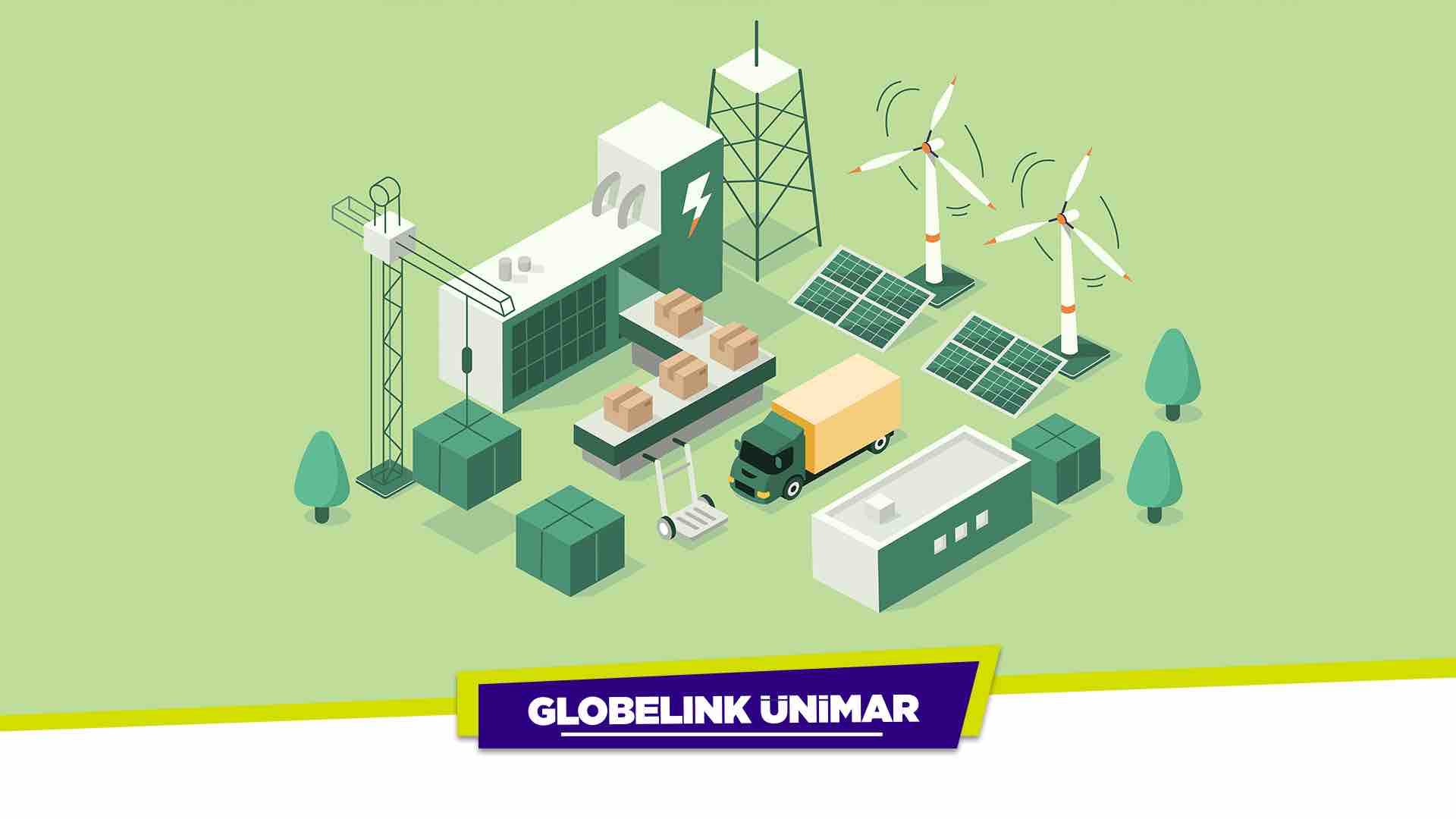
- December 11, 2022
- Blog
The new era, in which digitalization and sustainability come into the focus of everyone, transforms all sectors and causes changes and transformations in logistics and global supply chains. In supply chain operations, which combine logistics between both departments and companies, the steps taken for the future in a digital and sustainable sense are transforming the industry.
Several things have changed in our lives in the last two years. The world agenda has moved to completely different points today in light of some technological developments as well as the misfortunes experienced one after another on a global scale. Thanks to the extent reached by rapidly advancing technology, digital processes have reached an important position in the functioning of all sectors today. Likewise, as we started to feel the effects of climate change more and more, the concept of sustainability became the center of our lives. The climate crisis experienced by the world, which is getting hotter and the resources are depleting rapidly day by day, has mobilized the sectors, following the governments. All sectors that have a share in this crisis continue their efforts to create a cleaner and greener working environment by integrating sustainability into their business processes.
The new era, in which digitalization and sustainability come into the focus of everyone, transforms all sectors and causes changes and transformations in logistics and global supply chains. While the logistics industry, which provides the most important contribution to the development of national economies, increases its importance on a global scale with the advancement of science and technology, the supply chain, which is the most important link between logistics processes, is also included in these developments.
The supply chain, which covers all moving services and activities from the raw material producer to the end consumer, has undergone a serious transformation, especially in the last two years. In supply chain operations, which combine logistics between both departments and companies, the steps taken for the future in a digital and sustainable sense are transforming the industry.
The Last Two Tough Years of the Supply Chain
While the Coronavirus significantly disrupted the production and logistics stages around the world, it caused global trade and national economies to slow down. The commercial activities, which were adversely affected by the pandemic, deeply shook the economies of the countries, causing a serious health problem as well as a global economic crisis, and the pandemic caused the transformation of almost all branches of international trade. In this process, efforts were made to improve both trade and exports and public health and needs. Logistics and supply chains have been one of the areas which are being dealt with and have undergone a transformation.
While quarantine practices negatively affected the supply chain, delivery times and costs of container transportation at airports and ports increased. Logistics factors such as difficulty in finding empty containers, long waiting times for unloading due to quarantine practices by container ships, and the inability of unloading ships to remove from the port caused disruptions in commercial activities while damaging the supply chain. As a result of the research, it was seen that companies experienced a loss of income and trust, and 73 percent of them experienced negativity in the supply chain due to the pandemic. The starting point of the supply chain, which was under the pressure of market activity and geopolitical factors, was technology.
The Transforming Effects of the Digital Age
Digital transformation in the supply chain covers the process of applying and integrating information, communication, computing, and connectivity technologies into supply chain operations, from inventory management and information storage to transportation and distribution. In particular, real-time visibility helps to detect bottlenecks that may arise early while new technologies such as digital twin and 3D printing reduce interruptions that may occur in the process, so they stand out as systems with a higher rate of preference.
When the process in the supply chain is combined with the Internet of Things and artificial intelligence, more efficient, accurate, and secure results are obtained. This caused companies that experienced a serious global supply chain crisis during the pandemic to want to eliminate risks by digitalizing their processes. As companies transform with technological systems to anticipate and prevent all kinds of unsafe situations that may pose a risk o the supply chain, the door to a brand new world is being opened in the industry. If we proceed at this speed, futuristic approaches that are only imagined today will become realities shortly.
For example, while unmanned processes increase in departments, the efficiency of robots will increase. Or all warehouse processes will be completely automated. These processes, which are still in development today, are expected to become reality if digitalization in the industry is implemented properly and successfully. When the successful examples of the digital supply chain are examined, it is seen that they spend a large part of their income not only on their commercial activities but also on innovations in technology in the supply chain. Companies integrating digital systems such as robotic automation, drone, sensor-based monitoring, augmented reality and artificial intelligence into their supply chain operations provide great revenue growth, especially in the consumption and retail supply chain.
To give an example, Walmart is one of the companies that continue to work on this issue. Global retail chain Walmart recently created a technology platform to support its delivery system as it wants to better manage its digital order flow. In this way, the company announced that it increased its in-store pickup and delivery capacity by 20 percent in 2021 and plans to increase the rate to 35 percent this year. Marketplace integration and autonomous delivery are among the company’s near future goals. One of the similar developments is taking place in Unilever, one of the world’s largest food and fast-moving consumer goods companies. The company uses an advanced analytical data-driven system to provide more holistic and detailed management of its stocks. The system, which separates the data by brand, customer, category, and channel, allows for easy reading of subjects such as the continuity of production, consumer purchasing habits, and the demands of retail chains.
The Demand for a Sustainable Approach is Rising
It has become one of the most important requirements of today for companies to adopt a sustainability approach not only in their in-house operations but throughout the entire life cycle of their products. As in all industries, developments in the logistics industry in the name of green transformation increase this necessity even more. In this direction, it has been observed that companies have made their supply chains sustainable by measuring and auditing their business processes with their suppliers and stakeholders and establishing collaborations in this regard and they have turned this into a competitive advantage.
UN Global Compact defines a sustainable supply chain as the management of environmental, social, and economic impacts and the promotion of good governance practices throughout the entire life cycle of goods and services. From this perspective, when companies expand their sustainable strategies to include the entire supply chain, long-term value can be created both for the future of company operations and for their stakeholders and society in general.
The Role of Sustainability in the Supply Chain
Countries need to recognize the climate leadership opportunities ahead of them and revise their national climate policies in a way that will support renewable energy and energy efficiency investments and remove coal and other fossil fuels from their centers. While managing the supply chain, logistics processes should be harmonized sustainably, taking into account the ethical, social, and ecological aspects. For this reason, the determined sustainability targets should be implemented across the industry and a transparent environment should be created in all operations of the supply chain.
Both the public and private sectors should give more importance to railway investments to reduce the total greenhouse gas emissions from the logistics industry, which directly affects the supply chain. It is also necessary to shift the freight mostly transported by road to environmentally friendly transportation types such as rail and combined transportation, to correctly design logistics centers where freight transfers between transportation types are facilitated, and to bring legislation and implementation changes to be brought based on the sustainability principle.
Sustainability practices in the supply chain in developing markets contribute positively to companies as they reduce legal risks. This, in turn, increases the interest in sustainable approaches, as it highlights the company among its competitors. In particular, the United Nations Global Compact, the European Green Deal and the Paris Climate Agreement decisions also play an important role. Aiming at sustainable development and transformation on a global scale, these decisions encourage companies to develop and renew economically, environmentally, and socially sustainable systems and practices.
Although transformations have started to emerge in the supply chain in line with the goals, many steps still must be taken. When all procedures are implemented properly, supply chains will become transparent and reliable, as well as increase the advantages of companies in the market as they will be the primary choice in the global arena.
Artificial Intelligence is Both Changing and Transforming
Today, we can see the clues that we will
The Future of the Cargo Market is Shaped by e-commerce
The e-commerce industry has been growing rapidly since the



